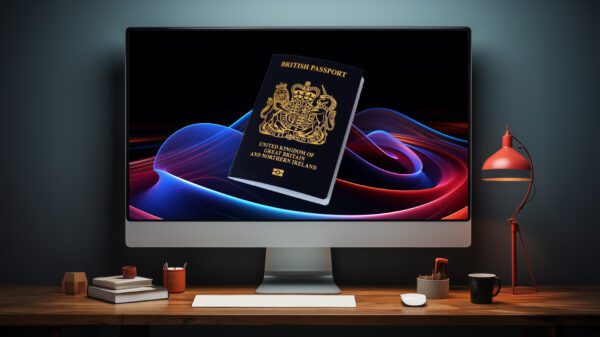Latest Posts

Post-Brexit Visa Salary Rules: The Impact on Architecture Recruitment and the Case for Reform
The UK’s architectural sector has long been an essential contributor to the built environment, shaping cities, housing, and infrastructure projects that support economic growth. However, recent changes to post-Brexit visa salary rules have introduced significant recruitment challenges for architecture firms across the country.
The removal of architecture from the Shortage Occupation List and the increase in the minimum salary threshold for visa sponsorship from £26,000 to £45,900 have placed many firms in a difficult position. These changes, intended to reduce dependency on overseas labour, have instead exacerbated an existing skills shortage, impacting both the ability of firms to hire internationally and the broader goals of the UK’s construction and housing agenda.
At Quastels, we work closely with businesses and professionals navigating the UK immigration system, and we recognise the pressing need for reform in response to these challenges.
The Challenges Facing Architecture Firms
1. A Salary Threshold That Exceeds Industry Norms
The increased salary threshold disproportionately affects the architecture sector, where early-career professionals, particularly recent graduates, earn well below the new requirement. Many architectural practices, particularly small and mid-sized firms, find themselves unable to offer salaries that meet the sponsorship criteria. This has led to a talent bottleneck, where highly skilled international graduates- many of whom have studied and trained in the UK- are unable to remain in the country due to visa restrictions.
2. Impact on the UK’s Housing and Infrastructure Goals
The government has set ambitious housing targets, aiming to construct 1.5 million new homes over the next five years. However, achieving these objectives requires a robust and diverse workforce, including skilled architects who can contribute to complex planning, design, and urban development projects. By limiting access to international talent, the new visa rules risk slowing down progress in housing and infrastructure, creating further strain on the sector.
3. Increased Costs and Administrative Burden on Employees
Firms that wish to sponsor international architects must now budget for significantly higher salaries, which is not always financially viable, especially for smaller practices. Additionally, the administrative process for obtaining a sponsor licence remains cumbersome, requiring firms to navigate complex compliance requirements. Many companies that previously relied on international talent have now been forced to reconsider their recruitment strategies or face staffing shortages.
4. The Competitive Disadvantage for UK Firms
In a globalised industry, talent moves freely to where opportunities are most accessible. The UK risks falling behind other countries, such as Canada and Australia, which have more flexible immigration policies for architects and other skilled professionals. The inability to attract and retain global talent puts UK architecture firms at a competitive disadvantage, both in terms of securing high-profile projects and fostering innovation within the sector.
The Case for Policy Reassessment
At Quastels, we strongly advocate for a measured and pragmatic approach to immigration policy, ensuring that the UK remains an attractive destination for skilled professionals while also addressing workforce concerns. We believe that the following reforms should be considered:
- Reinstating architecture on the Shortage Occupation List– Recognising the sector’s ongoing need for skilled professionals and allowing firms to recruit internationally at a more sustainable salary level.
- Adjusting the salary threshold– Introducing sector-specific salary requirements that reflect the economic realities of each industry, rather than a blanket threshold that disproportionately impacts architecture and other creative professions.
- Streamlining the sponsorship process– Reducing administrative barriers for businesses looking to hire international talent, making it more efficient and cost-effective to recruit skilled workers from abroad.
- Enhancing post-study visa routes– Ensuring that international architecture graduates trained in the UK have a clear pathway to remain and contribute to the workforce, rather than being forced to leave due to restrictive visa policies.
How Quastels Can Assist
We understand the critical importance of hiring and retaining the right talent, and we work closely with architecture firms, professionals, and business leaders to navigate these new challenges.
Our specialist business immigration team provides:
- Strategic advice on sponsorship and visa options for firms looking to recruit international talent.
- Assistance with sponsor licence applications to ensure compliance with Home Office regulations.
- Support for international professionals seeking clarity on their immigration status and future pathways to remain in the UK.
- Advocacy for policy change, engaging with stakeholders to promote a more sustainable immigration framework for the architecture sector.
Conclusion
The recent changes to visa salary rules represent a significant shift in UK immigration policy, but they also raise concerns about the long-term impact on industries that rely on international expertise. The architecture sector is a prime example of how rigid immigration policies can create unintended consequences, hindering recruitment, innovation, and economic growth.
A more tailored, sector-specific approach is essential to ensure that the UK continues to attract and retain top-tier architectural talent, supporting both the industry and the broader objectives of housing and infrastructure development.
Contact our team today to discuss your immigration needs and explore the best strategies for securing talent in the evolving post-Brexit landscape.
Read More
Are Your Claw-Back Clauses Compliant With UK Immigration Laws? Navigating the Latest Sponsor Licence Changes
From December 2024 and January 2025, significant changes have been introduced to the UK Sponsor Licence Guidance, and claw-back clauses in employment contracts have been in the spotlight. These changes are critical for employers sponsoring skilled workers under the UK immigration system, as non-compliance could result in severe penalties, including the suspension or revocation of your sponsor’s licence.
A claw-back clause allows employers to recoup certain costs associated with sponsorship and visa applications if an employee leaves their role prematurely. While these clauses can protect your company’s financial investment, the updated guidance introduces strict limitations to ensure fairness and compliance with UK immigration law.
Key questions to consider:
- Are your claw-back clauses clearly defined and legally enforceable?
- Are you aware of the costs you can and cannot recover from employees?
- Is your company prepared for a Home Office audit?
Employers would need to clearly define which costs can be recovered through a claw-back clause. Employers would typically include claw-back provisions for:
- Relocation expenses
- Sign-on bonuses
- Recruitment fees
- Specific training costs
- Visa and immigration costs
- Professional membership fees
Employers must ensure that these costs are reasonable and directly related to the employee’s role, and employment contracts must clearly set out the circumstances in which claw-back provisions apply, the specific costs that can be recovered, and the timeframe and method of recovery.
The newly updated guidance now explicitly prohibits employers from recouping the following costs from employees:
- Immigration Skills Charge (ISC)
- Certificate of Sponsorship (CoS) fees
- Sponsorship licence fee and ‘associated administrative costs’
These costs are considered to be the responsibility of the employer and cannot be passed on to the employee, even indirectly. The main concern revolves around associated administrative costs. According to the official guidance and the Sponsorship Management System, these costs definitely include priority service fees, which employers are not allowed to recover. In addition, following consultation with the Home Office, legal fees associated with sponsorship must also be covered by the employer.
In the case of newly established companies, even if the founder or entrepreneur initially pays for the legal and administrative costs personally, the application for a sponsorship licence and the associated fees must ultimately be paid by the company. This ensures compliance with government regulations and helps to avoid potential audit issues.
Employers need to review their existing employment contracts and sponsorship policies to ensure they comply with the updated guidance. Failure to do so could result in the suspension or revocation of their sponsorship licence. In addition, clear and transparent communication with both current and prospective skilled workers is crucial. Employers should provide detailed information on claw-back clauses and their implications, and ensure that employees fully understand their rights and obligations.
At Quastels, we specialise in corporate immigration and employment law, and offer tailored solutions to help employers navigate these changes with confidence. Our services are designed to ensure your business remains compliant while protecting your investment in global talent.
For further assistance or to arrange a compliance review, please contact our team. We are here to help you navigate these changes and ensure your sponsorship practices remain robust and compliant. Let us help you protect your business and your employees.
Read More
The Return of the UK Investor Visa: A New Era for Global Entrepreneurs?
For years, the UK’s Tier 1 Investor Visa was a pathway for high-net-worth individuals to secure residency through significant investment in the British economy. However, in 2022, the visa was abruptly closed due to concerns over security risks, money laundering, and a lack of tangible economic benefits. Since then, the UK’s approach to attracting foreign investment has been fragmented, with alternatives like the Innovator Founder Visa failing to fill the gap.
Now, as discussions emerge about the potential return of an investor route, the UK faces a critical opportunity: Can it design a new investment-based immigration pathway that both attracts global talent and safeguards national interests?
The Need for a New Investor Route
The UK is at an economic crossroads. While the government prioritises attracting innovative entrepreneurs and skilled workers, foreign direct investment (FDI) remains a crucial driver of growth, job creation, and technological advancement. Countries like Canada, Portugal, and Australia continue to leverage investment migration to their advantage, making the UK’s lack of an Investor Visa a notable gap in its immigration offering.
A Well-Designed Investor Visa Could:
- Boost the UK economy by directing capital into key sectors, such as technology, infrastructure, and green energy.
- Encourage responsible investment through stricter due diligence and a requirement for active economic contribution.
- Strengthen global ties by positioning the UK as a prime destination for international investors and entrepreneurs.
What Might a New UK Investor Visa Look Like?
If reintroduces, an investor visa must learn from the past while aligning with modern economic needs. Likely characteristics include:
- Higher Investment Thresholds
- A move away from passive investment in government bonds and towards funding UK businesses, similar to models seen in Australia and Canada.
- Stricter Due Diligence
- A focus on ensuring funds are from legitimate sources, with robust compliance mechanisms.
- Economic Impact Requirements Investment directed at sectors that align with the UK’s growth agenda, such as AI, fintech, or clean energy.
- More Active Investor Participation
- A preference for investors who take an active role in the UK economy, either through job creation, board positions, or scaling British businesses.
- Faster, More Predictable Processing
- A structured, transparent pathway to residency that reassures investors about stability and policy consistency.
How Should Investors Prepare?
For potential applicants considering the UK as a destination, now is the time to prepare. While no official policy has been announced, businesses and high-net-worth individuals should:
- Monitor policy developments closely to stay ahead of legislative changes.
- Diversify investment portfolios to align with the UK’s expected priority sectors.
- Engage with specialist immigration advisors to structure investments in compliance with evolving regulations.
At Quastels, we work closely with investors, entrepreneurs, and business leaders to ensure they navigate the UK’s immigration landscape strategically and effectively. If you are considering investment opportunities in the UK, our team can provide tailored guidance on the best pathways for securing long-term residency and business success.
The return of an investor visa “if structured correctly” could mark a new era of strategic foreign investment in the UK. The key question now is not if, but when.
For expert guidance on UK investment-based immigration, get in touch with Quastels today.
Read More